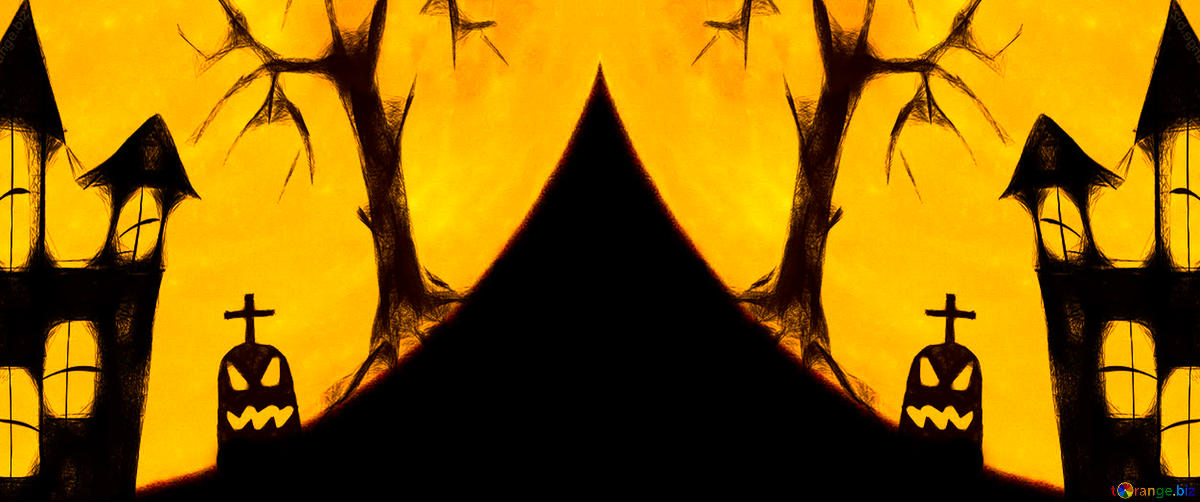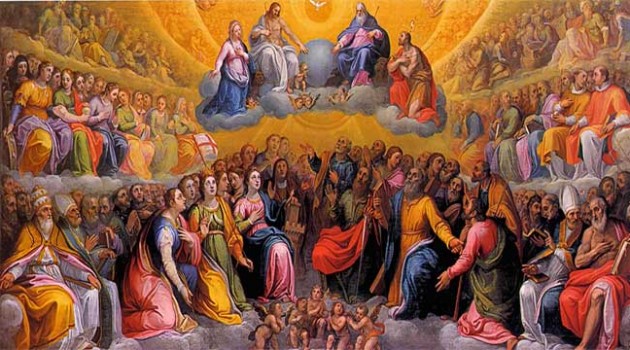Since we’re gathered here on Halloween, All Hallows Eve, I thought I might get your attention by doing a little homily I like to call “Would Jesus Go Trick-or-Treating?” It’s an important topic, because I think a lot of parents wrestle with the message of Halloween and whether or not they should support their children joining in the festivity.
And I think it’s an important thing to wrestle with. On one hand, we don’t want to make a joke out of evil, because evil is real and it’s no joke. But on the other hand, we don’t want to call attention to evil by making a big thing out of it. Exorcists tell us that those are the two common mistakes that we can make about evil: First, we might say think there is no such thing as the devil. Satan would be happy for us to do that, because then we’re not on guard against him. He is real, he’s out there, and we do have to be on our guard. The second mistake we might make is that we look for evil everywhere, and that just shuts us down and keeps us from living the Gospel. Neither of these is a good thing, and both of them play into Satan’s plans for us.
So let’s talk about Halloween. Its origins are a bit murky, and many people think that what happened is that we sort of baptized a pagan festival. Yes and no: there is a traditional pagan festival on October 31st, but apparently there is a traditional pagan festival on the last day of every month, so really that’s nothing particularly special. More likely, Halloween was a celebration of the Eve of All Saints – hence the name, Halloween, All Hallows Eve. All Saints Day originated in the year 609, when it was celebrated in May. But in the ninth century, it was moved to the first of November, which is when the Germanic church celebrated it, and it’s been celebrated then ever since.
The origins of trick-or-treating may have been in Ireland where an ancient Gaelic festival celebrated the harvest and marked the beginning of winter – the time of year when a significant portion of the population would often die. Because of the fear of death that came with winter, these celebrations seemed to have included going door to door asking for treats dressed in costumes, which were thought to disguise the living from life-taking spirits.
So the origins and intent of Halloween are more or less benign, and mostly intended to honor the saints. But in our country, over time, a more sinister tone was added to the celebration. Think of some of the more horrific costumes, extremely elaborate and grotesque “haunted houses,” and parties where more evil customs were brought to the celebration. Add that to some of the more elaborate horror movies that get released this time of year, and you can see how it would be easy to brand Halloween as an evil holiday.
Fundamentalist Christians especially see the evil, and thus throw out the entire celebration. But we are not fundamentalist Christians. So we remember that God is good, and that he is always in control, and we do not give the demonic or the evil any power it doesn’t already have. In fact, a lot of people think that there is more demonic activity at this time of year than normal, but exorcists tell us that is not true. It’s just that people tend to open more doors by their worrying and by doing some things they shouldn’t do to celebrate the holiday.
So now let’s remember what this holiday is really about. Today we celebrate the feast of all the Saints – those who have been officially canonized over the ages, and those that perhaps we don’t know of, but who God certainly knows. This is the Church Triumphant, those who have conquered evil and have mastered holiness. They have accomplished what they were created for, to take up their rightful place in the Kingdom of Heaven, that place that God has prepared for each one of us. Today we celebrate their triumph, and hope for our own triumph, for we too wish to live forever with our God. We celebrate the example the saints have given us and we depend on their intercession, which helps to guide our lives and lead us on the path of life eternal. So it is right to celebrate this as we celebrate other holidays, with great festivity.
I think it’s important that we celebrate Halloween and All Saints Day as one, which is the intent. If we do that, we keep our minds on what is positive and turn away from all that bids us evil. So yes, I think it’s okay to trick-or-treat, to celebrate with parties, and to dress up. But I’d skip the more evil costumes, perhaps in favor of costumes honoring the saints, and any party games that summon evil, like Ouija boards. In fact, if you have an Ouija board in your house right now, I want you to go home and destroy it and throw it away – don’t even give it to someone else – it’s not a party game. All these are things that open the door to evil, and we always want to avoid that.
Avoiding evil was the glory of the saints. That was part of the path to holiness for them. As we celebrate all the saints today, we might think of some who famously battled evil and won. Saint Michael the Archangel, my middle-name patron, fights the battle of evil that we don’t usually see, every single moment. He is a wonderful patron, and we should memorize the prayer to him and pray it often. Saint Benedict battled evil temptation in his own life by rolling around in briars rather than give in to a lustful memory. The Saint Benedict medal is particularly powerful in warding off evil. Saint Patrick, my principal patron, famously converted the pagan king of Ireland to Catholicism and exorcised the forces of evil in that country. His famous Breastplate prayer is considered a deliverance prayer and a help to those who feel oppressed by evil. Of course, the Blessed Virgin Mary, Queen of Heaven and Earth, is a powerful protector of all of us, her children. And let’s not forget our Guardian Angels, who do battle for us on a daily basis. That’s just a few of the saints who battle for our good.
And in the spirit of their glorious battle, we should dedicate ourselves to joining them one day. We are all supposed to be saints, and as tall an order as that may sound, it needs to be our number one priority. Because there is no one in heaven who is not a saint. So then, we need to take all the help God and His Church gives us: we must dedicate ourselves to the sacraments, particularly the sacrament of Penance and the Eucharist, which together are more powerful than a solemn exorcism. We must put prayer at the beginning, in the middle and the end of our to-do lists, dedicating ourselves to the Blessed Sacrament, to the reading of scripture, and devotions, particularly the rosary. We have to make every effort to live the Gospel, and to give witness to the power of God’s love in our lives and in our world. Because if we honor and witness to Christ in this life, he will surely be our advocate in the life to come.
So yes, I think Jesus might trick-or-treat. But we come to him today for the best of all treats, the saving grace that he offers us that we might join the saints in heaven one day. We come to Jesus rejoicing and full of gladness, because we know that those who belong to him will have great reward in heaven.



You must be logged in to post a comment.